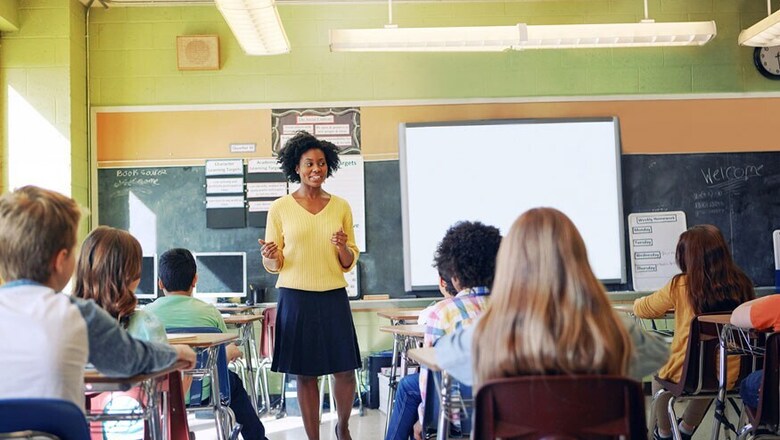
views
Are you in a profession that requires you to stand for long huors? Podiatrist at Baylor College of Medicine, USA has suggested adding a comfortable pair of shoes onto your new season shopping list.
Here he provides 10 tips for good foot health.
- Look for shoes that are wide enough for their foot and deep enough in the toe area so that their toes can move around easily.
- Shoes should support the arch and have a firm heel counter so the heel does not slip around in the shoe.
- Open-back or sling-back shoes are not as supportive. If you are allowed to wear a more casual shoe in your workplace Lepow suggests an athletic shoe.
- If shoes do not offer adequate support, there are over-the-counter arch support products available as well as custom-designed orthotics through a podiatrist.
- Common problems related to unsupportive shoes include plantar fasciitis, or pain on the bottom of the foot, and Achilles tendonitis, pain in the back of the heel. "If you have gone from a period of relative inactivity to being on your feet for seven hours a day, you might develop one of these conditions," says Lepow.
- If you do have pain, Lepow suggests stretching exercises to help relieve discomfort. Soaking feet in a whirlpool at the end of the day also can help relax the muscles.
- Another common problem can be excessive perspiration, which can lead to athlete's foot. Lepow advises using a good foot powder to prevent sweating and suggests not wearing the same shoe every day. Instead try to use a shoe tree and alternate your shoes every third day to give the inside of the shoe time to dry out. If this doesn't work, try using an antiperspirant on the bottom of the feet each day.
- If you do get athlete's foot, it's important to determine what type it is in order to treat it. Different over-the-counter products are available for dry, scaly skin versus red, hot and swollen skin on the feet.
- It's not just important that working adults look after their feet. For students who are heading back to school, Lepow also suggests purchasing supportive shoes that are well-suited for school-day activities rather than sandals or flip-flops.
- If these problems are prolonged and are not relieved by other techniques such as the ones suggested here, Lepow suggests seeing a podiatrist to see if a more aggressive treatment or physical therapy is appropriate.


















Comments
0 comment